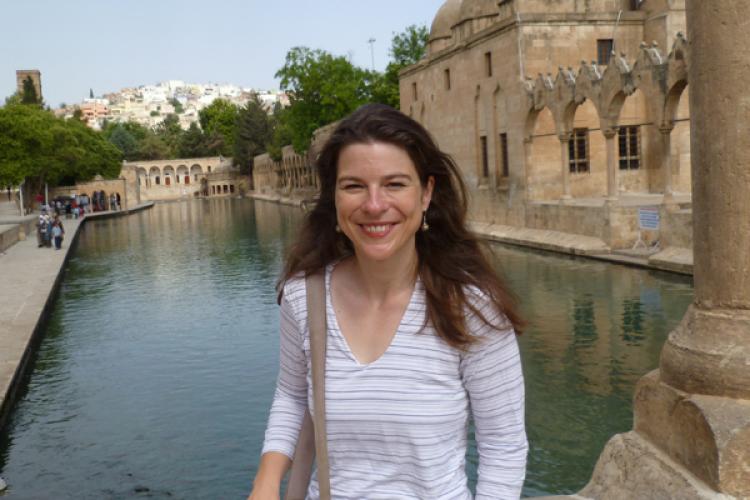
Jaclyn Maxwell's new book examines socioeconomic status in the early days of Christianity

In her new book, Dr. Jaclyn Maxwell takes a subject that still resonates today — socioeconomic status — back to late antiquity and examines how upper-class Roman church leaders looked back upon the fishermen and manual laborers at the foundation of their religion.
Simplicity and Humility in Late Antique Christian Thought: Elites and the Challenges of Apostolic Life (Cambridge University Press) examines the socioeconomic implications of Christianity in the Roman Empire by considering how the first wave of powerful, upper-class church leaders interpreted the socially radical elements of their religion. She looks at how the social values of upper-class Christians just a few hundred years later often contrasted with the modest backgrounds of their religion's founders — the apostles — and the virtues they exemplified.
Maxwell, who holds a joint appointment in the departments of History and Classics and Religious Studies in the College of Arts and Sciences, discussed her book at a recent meeting of the History Faculty Research Seminar.
She explained that the social values of upper-class late antiquity Christians frequently differed from those of the apostles, who originated from much more modest backgrounds. She used examples from the first group of powerful, upper-class church leaders — Cappadocian Fathers, John Chrysostom, and other late antique authors — to examine attitudes toward the apostles’ status as manual workers and their virtues of simplicity and humility.
"Due to the strong connection between these traits and low socioeconomic status, late antique bishops often allowed their own high standing to influence how they understood these matters. The virtues of simplicity and humility had been a natural fit for tentmakers and fishermen but posed a significant challenge to Christians born into the elite and trained in prestigious schools,” Maxwell said.
"In her consideration of how the first group of powerful, upper-class church leaders interpreted the socially radical implications of their religion, Maxwell’s study makes a significant contribution to scholarship on Christianity in the Roman Empire," said Dr. Katherine Jellison, professor of history.
Simplicity and Humility in Late Antique Christian Thought is the second book Maxwell has published with Cambridge University Press. Her first book, Christianization and Communication in Late Antiquity: John Chrysostom and His Congregation in Antioch (Cambridge University Press, 2006), also dealt with the topic of Christianity in the Roman Empire.
